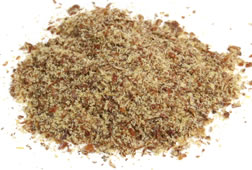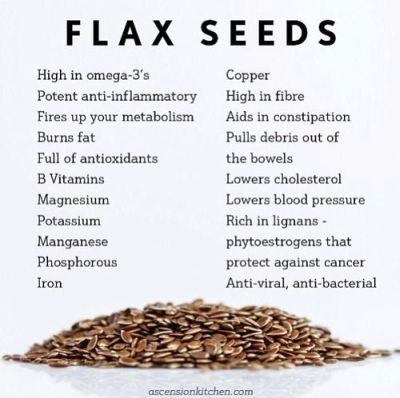Thanks to the Mayo Clinics Katherine Zeratsky for this info on how to eat more Flax seed. I am sure that you may have heard somewhere about how great Flax seed is for Omega vitamins and fiber, this info will help you make the most of using Flax seed
Most nutrition experts recommend ground flax and that you should eat more flax seed because your body is better able to digest it. Whole flaxseed may pass through your intestine undigested, which means you won’t get the health benefits of flax seed.

Flax seed is high in fiber, omega-3 fatty acids, and phytochemicals called lignans.
Flax seed can help reduce total blood cholesterol and LDL (“bad”) cholesterol levels and, as a result, may help reduce the risk of heart disease.
Flaxseed oil also contains omega-3 fatty acids, but it doesn’t have the beneficial fiber that the seeds have.
You can purchase raw flax seed in bulk whole or ground at many grocery stores and health food stores.
Whole seeds can be ground in a coffee grinder and then stored in an airtight container for several months. Doing this and having it on hand will help you eat more flaxseed.
Although the Institute of Medicine has not set a recommended daily intake for omega-3 fatty acids, it has established adequate intake amounts of between 1.1 and 1.6 grams per day for adults.
One tablespoon of ground flax seed provides 1.6 grams of omega-3 fatty acids.
How to Eat more Flaxseed in your Diet
- Add a tablespoon of ground flax seed to your hot or cold breakfast cereal.
- Add a teaspoon of ground flax seed to mayonnaise or mustard when making a sandwich.
- Mix a tablespoon of ground flax seed into an 8-ounce container of yogurt.
- Bake ground flaxseed into cookies, muffins, breads and other baked goods.

You can also use flax seed in place of eggs in muffins, pancakes and cookies. To substitute flax seed for one large egg in a recipe, use 1 tablespoon ground flax seed plus 3 tablespoons water.
Although Lilian Thompson, PhD, an internationally known flaxseed researcher from the University of Toronto, says she wouldn’t call any of the health benefits of flax “conclusively established,” research indicates that flax may reduce risks of certain cancers as well as cardiovascular disease and lung disease.
Recent studies have suggested that flaxseed may have a protective effect against breast cancer, prostate cancer, and colon cancer.
At least two of the components in flaxseed seem to contribute, says Kelley C. Fitzpatrick, director of health and nutrition with the Flax Council of Canada.
Keep in mind that it will somewhat alter the texture of the finished product, making it slightly “gummy.”
although it is not critical so it can be overlooked it is a good idea to eat more flaxseed to improve your health, try it starting today



